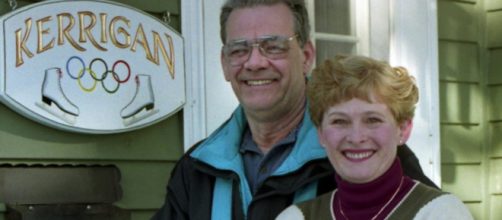Justin Kawika Young kicked off his career in music, first as a solo singer (under the name Jay Jay Pistolet) and later, as the lead singer of an English indie rock band called The Vaccines. Justin was born in England and raised by a filmmaker father – so it’s no surprise that he would ultimately turn his attention to filmmaking.
Justin made his directorial debut on “My Hero’s Shadow,” a confronting documentary about Shane Stant, the man who attacked Nancy Kerrigan, which will be released later this year. The movie explores the life of the man who swung the baton that struck Nancy Kerrigan in 1994 and the relationship he has with his sister, who has never known her brother to be anything but a kind, gentle and heroic man.
Justin recently discussed this film project and more via an exclusive interview.
Films, documentaries, and Shane Stant
Meagan Meehan (MM): What inspired you to become a documentarian, sir?
Justin Young (JY): I think initially I was just such a fan of the genre and felt like of the most powerful movies I’d seen were documentaries. I’ve been a musician and songwriter professionally my whole life, so this wasn’t too much of a stretch.
MM: What was the big break; for instance, was there a project that did so well it convinced you to push on?
JY: Hopefully this is my big break! I’m a first-time filmmaker, so I feel fortunate to have had such a cool project and great team to work with. Whatever the amount of success we get with this I plan to continue, but it certainly would open more doors if it does well.
MM: How did you obtain the rights to the story of Shane Stant – and do you have exclusivity?
JY: I’m friends with Shane’s sister Maile, and I think he really wanted to do the project for her and to have this shared experience together. Yes, it’s exclusive. He’s done very little press over the years, so we definitely have a lot of content that has never been shared before.
Motivation, audiences, and movies
MM: What was the motivation for a movie about the infamous "Tonya Harding" case?
JY: I think that it has the potential to bring some light into a dark story. I was fascinated by the Kerrigan/Harding attack, like everyone, and it’s easy to forget that these people are more than just this one event.
I think it’s an interesting journey where Maile only knows Shane as a hero and is now learning about his past as a hitman, while the audience is traveling the other way. They only know him as this bad guy, and they’re seeing him as much more than that. So eventually Maile and the audience meet somewhere in the middle.
MM: What did you want to relay to audiences about this man?
JY: I think you see that he’s taken accountability for what happened and is genuinely sorry. You also learn about how his upbringing sort of created him to be the kind of person who was capable of doing this and yet after the attack he really took control and decided not to let his childhood dictate his life.
MM: Was there anything left out of the movie that you would’ve liked to have touched upon?
JY: There were some more extreme elements of abuse that I didn’t include. And a few cultural elements from Hawai’i that were left out to save time. It’s hard to make those cuts!
MM: At its core, do you see this movie more as a documentary centered on the Nancy Kerrigan attacker or a movie focused on a beautiful relationship between siblings?
JY: Initially I really saw it as Maile’s story, her experience of her brother. To some extent that’s still the case. The attack is central to the film, but to me, it’s way more about their relationship. There’s definitely a tabloid aspect to the attack and to Shane’s story that brings out a lot of different people wanting a piece of the action. Our goal was really to elevate the conversation with this film and bring some humanity back to the story.


